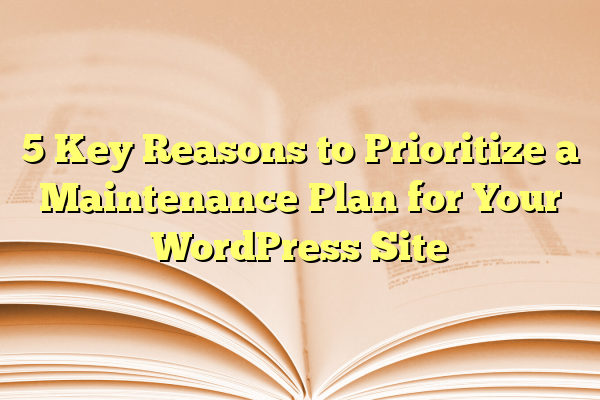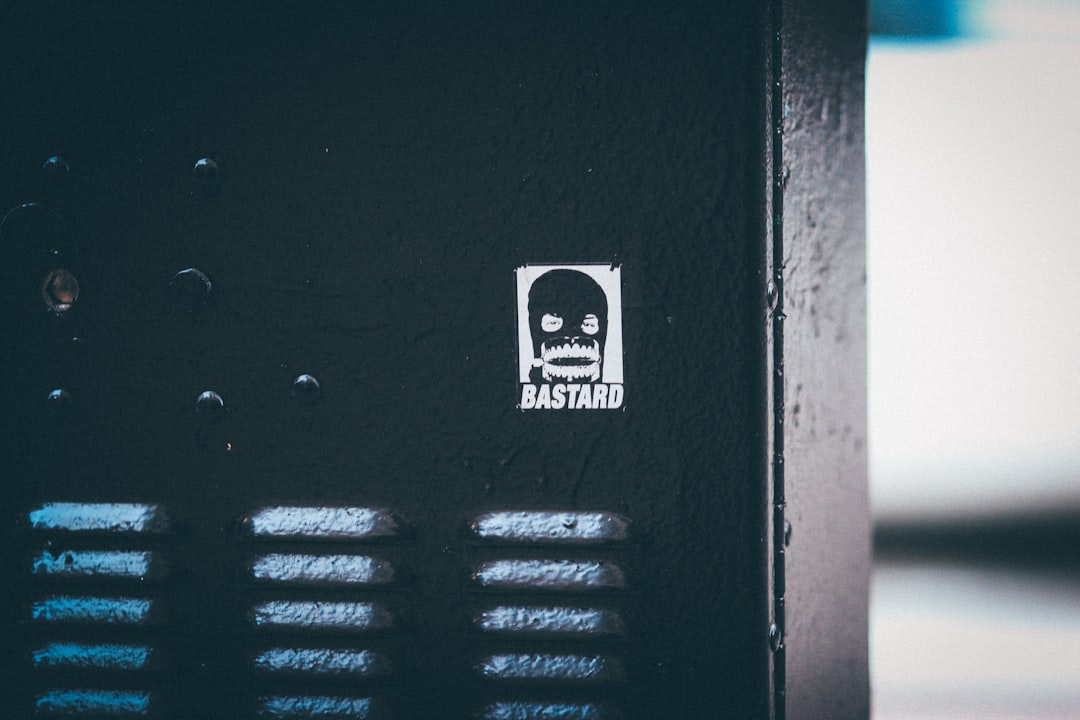
5 Key Reasons to Prioritize a Maintenance Plan for Your WordPress Site
In today’s digital landscape, having a professionally designed WordPress site isn’t enough. To keep it running optimally and protect it from potential issues, it’s essential to implement a consistent maintenance plan. WordPress, while versatile and user-friendly, requires regular updates and care – much like any powerful tool. Below are five key reasons why website owners should prioritize a maintenance plan for their WordPress websites.
Contents
1. Security and Protection Against Threats
WordPress powers over 40% of the internet, making it a frequent target for hackers and malicious software. Without a dedicated maintenance strategy, your website becomes vulnerable to security threats that could compromise sensitive data or take your site offline entirely.
- Regular plugin and theme updates close security loopholes.
- Scheduled security scans detect malware or unauthorized access early.
- Backups provide peace of mind and fast recovery in case of a breach.
By keeping WordPress core, themes, and plugins up to date, site owners can significantly reduce the risk of cyberattacks and ensure their site continues to function in a secure environment.

2. Optimized Speed and Performance
Site speed plays a significant role in user experience and search engine rankings. Over time, even the most well-designed site can suffer from performance bottlenecks due to bloated databases, outdated plugins, or unoptimized media files.
A maintenance plan typically includes tasks such as:
- Database optimization
- Image compression
- Cache management
- Code clean-ups
These tasks ensure a faster, smoother experience for visitors and improve SEO outcomes, helping site owners achieve better visibility and engagement.
3. Improved User Experience
Visitors expect a website to be fast, intuitive, and error-free. Unmonitored sites often fall prey to broken links, outdated content, or compatibility issues that frustrate users and repel potential customers.
Routine maintenance ensures:
- All site functions work as intended, regardless of browser or device.
- Navigation remains user-friendly through regular audits.
- Content stays relevant and updated to keep users engaged.
Ensuring a consistent and quality user experience can be one of the best investments for increasing visitor retention and conversion rates.

4. Minimized Downtime and Site Errors
Website downtime can negatively impact credibility, user trust, and revenue. A proactive maintenance strategy reduces the risk of unexpected issues and allows for early detection of potential problems.
With regular monitoring and performance checks, maintenance plans help prevent:
- Server outages
- Broken plugins or integrations
- Database connectivity issues
Proactively addressing these issues ensures that the website remains functional and accessible at all times, safeguarding the reputation of businesses and bloggers alike.
5. Long-Term Cost Savings
Neglecting maintenance might seem cost-effective in the short term, but it can lead to expensive emergency fixes and lost opportunities. Regular upkeep mitigates these risks and extends the overall lifespan of a website.
Think of a WordPress site like a car: routine oil changes cost far less than engine repairs. A small investment in maintenance today can prevent large expenses down the line.
Additionally, site owners benefit from:
- Avoiding unexpected repair costs
- Preserving search engine rankings
- Streamlining scalability as the site grows
Ultimately, a maintenance plan is not just a safeguard – it’s a strategic business decision to protect and grow a digital asset.
Frequently Asked Questions
Q1: How often should a WordPress site be maintained?
A: Ideally, basic maintenance should be done weekly, with detailed audits and optimizations performed monthly or quarterly, depending on the site’s complexity.
Q2: Can I handle WordPress maintenance myself?
A: Yes, if you have the technical knowledge and time. However, many site owners prefer hiring professionals who can manage various maintenance tasks consistently and efficiently.
Q3: What happens if I don’t maintain my WordPress site?
A: Failure to maintain your site can lead to security vulnerabilities, slower performance, broken functionality, and potential data loss or downtime.
Q4: What should a typical maintenance plan include?
A: A good plan covers security updates, backups, performance optimization, plugin and theme updates, database cleanups, and error monitoring.
Q5: Is a maintenance plan necessary for a small or simple site?
A: Absolutely. Regardless of size, every website benefits from ongoing maintenance to ensure it continues working properly, loading quickly, and remaining secure.
